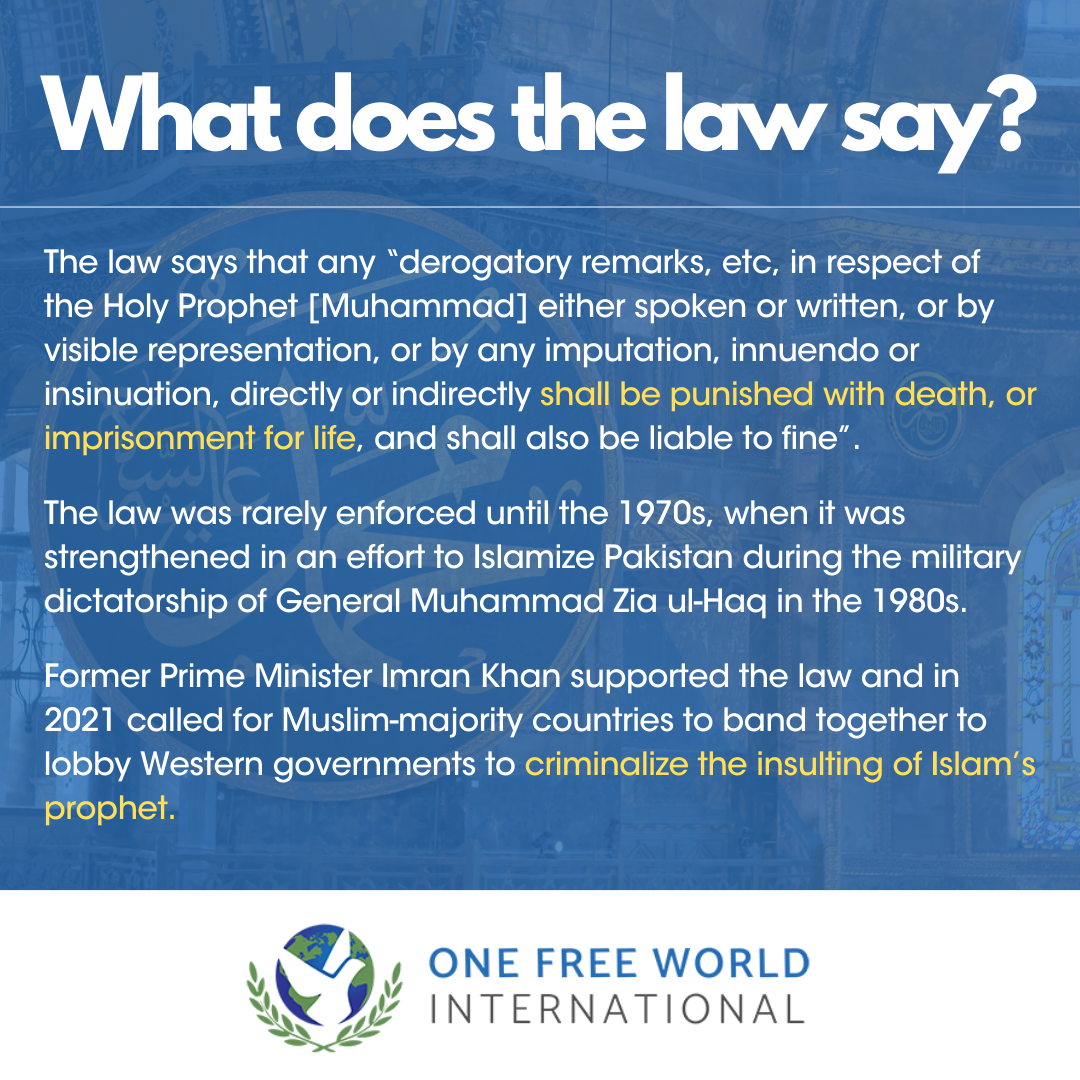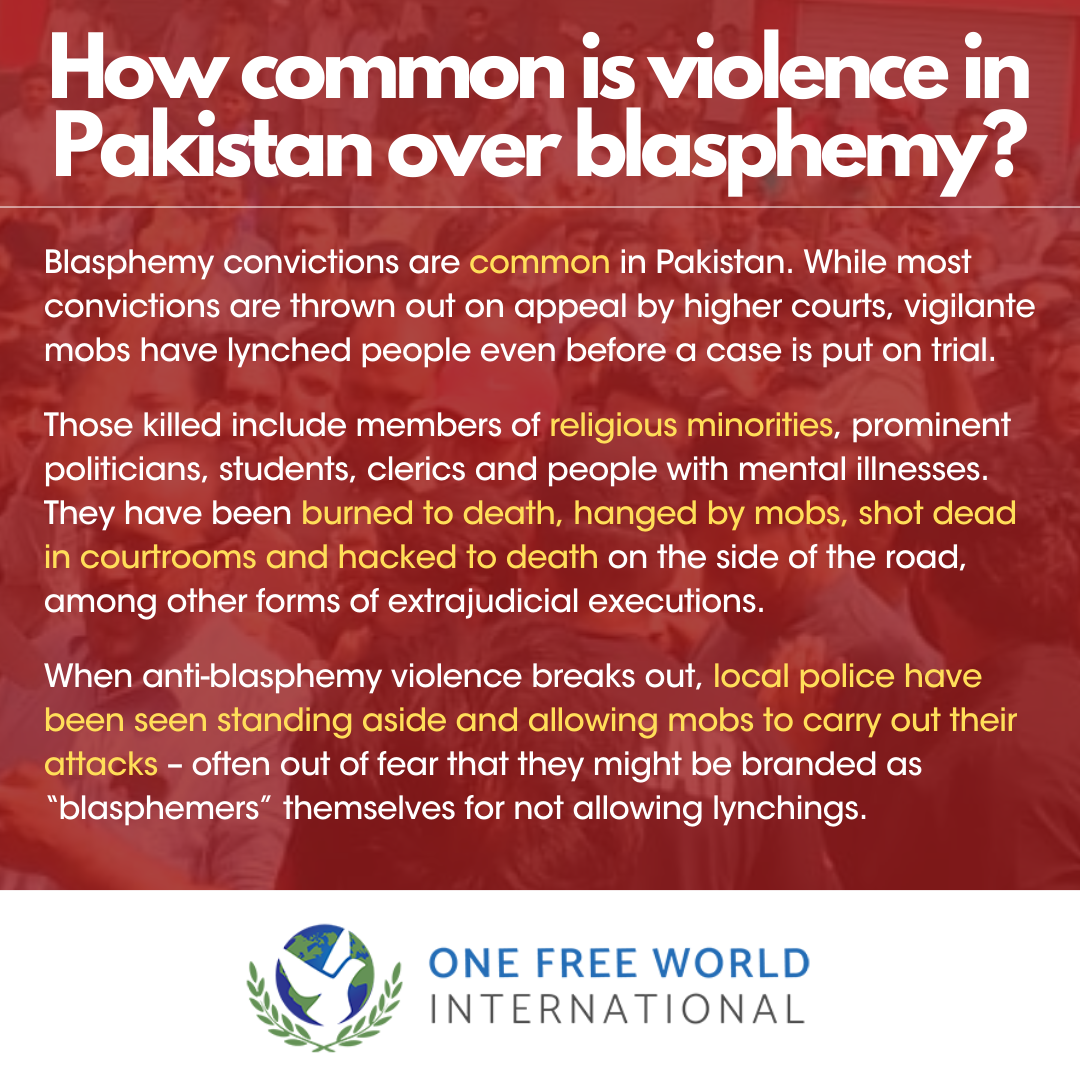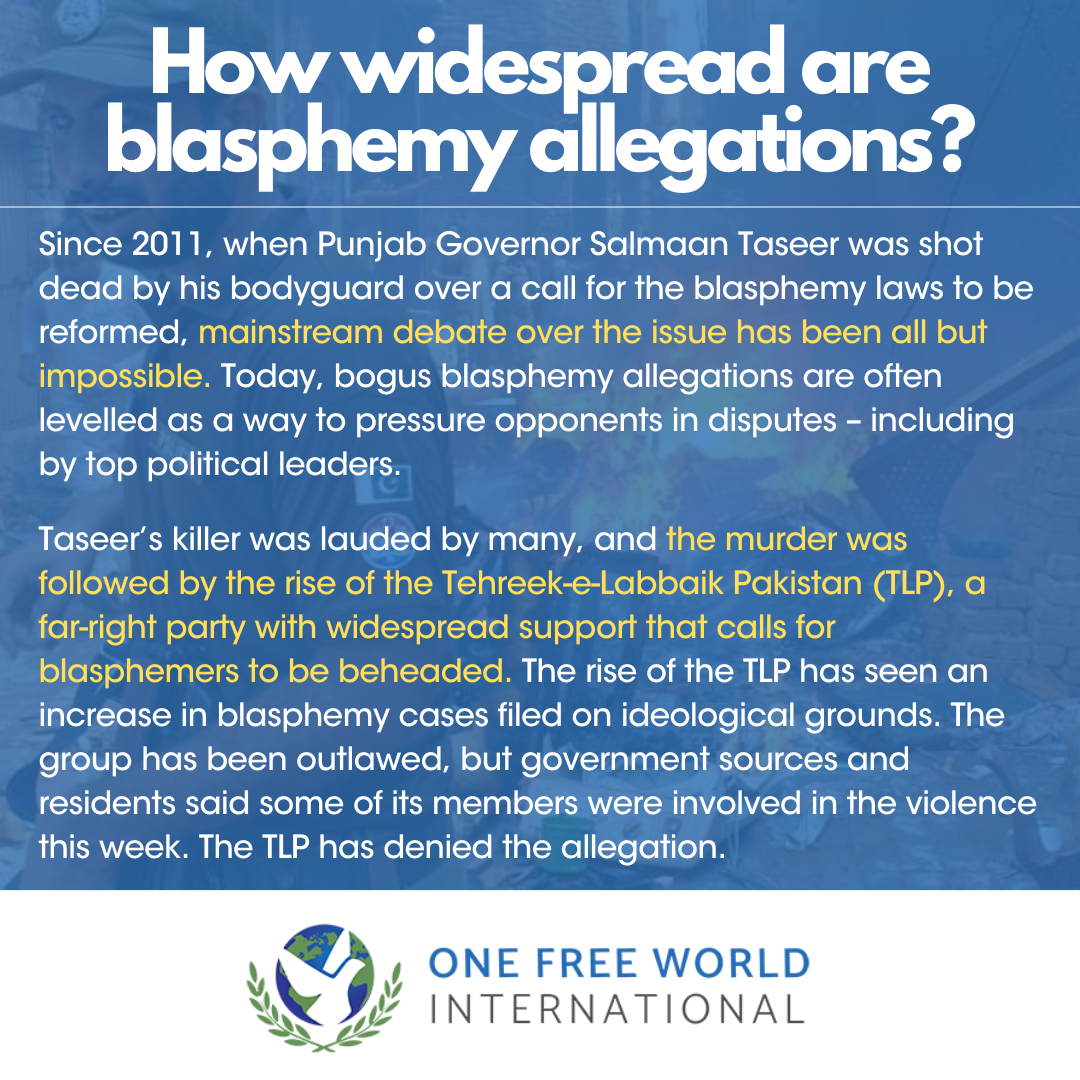Pakistan’s Blasphemy Law: An Affront to Justice & Human Rights
This past summer, OFWI sent out an urgent Action Alert about Christians being attacked in Pakistan. Christian homes and churches were being ransacked and set ablaze by Islamic extremists following two Christians accused of desecrating the Quran under Pakistan’s draconian blasphemy law.
Pakistani police eventually arrested two Christians accused of blasphemy, a serious charge in Muslim-majority Pakistan, where even unsubstantiated allegations of insulting Islam and its Prophet Muhammad can lead to murder.
Pakistan’s blasphemy laws have enabled and encouraged legal discrimination and persecution in the name of religion for decades. OFWI’s team on the ground in Pakistan have regularly reported witnessing instances of the blasphemy law misused against Pakistan’s religious and ethnic minority groups, and in some instances, even against Muslims to settle personal scores.
What is the blasphemy law?
The law says that any “derogatory remarks, etc, in respect of the Holy Prophet [Muhammad] either spoken or written, or by visible representation, or by any imputation, innuendo or insinuation, directly or indirectly shall be punished with death, or imprisonment for life, and shall also be liable to fine”.
3 Things you need to do know about Pakistan’s Blasphemy law
The law was rarely enforced until the 1970s, when it was strengthened in an effort to Islamize Pakistan during the military dictatorship of General Muhammad Zia ul-Haq in the 1980s.
Former Prime Minister Imran Khan supported the law and in 2021 called for Muslim-majority countries to band together to lobby Western governments to criminalize the insulting of Islam’s prophet.
How common is violence in Pakistan over blasphemy?
Although there have been no known executions, blasphemy convictions are common in Pakistan. While most convictions are thrown out on appeal by higher courts, vigilante mobs have lynched dozens of people even before a case is put on trial.
Those killed include members of religious minorities, prominent politicians, students, clerics and people with mental illnesses. They have been burned to death, hanged by mobs, shot dead in courtrooms and hacked to death on the side of the road, among other forms of extrajudicial executions.
According to local media and researchers, at least 85 people have been murdered in relation to blasphemy allegations since 1990.
Judges hearing blasphemy cases have reported facing pressure to hand down convictions, regardless of the evidence, fearing physical violence if they don’t.
When anti-blasphemy violence breaks out, local police have been seen standing aside and allowing mobs to carry out their attacks – often out of fear that they might be branded as “blasphemers” themselves for not allowing lynchings.
How widespread are blasphemy allegations?
Since 2011, when Punjab Governor Salmaan Taseer was shot dead by his bodyguard over a call for the blasphemy laws to be reformed, mainstream debate over the issue has been all but impossible. Today, bogus blasphemy allegations are often levelled as a way to pressure opponents in disputes – including by top political leaders.
Taseer’s killer was lauded by many, and the murder was followed by the rise of the Tehreek-e-Labbaik Pakistan (TLP), a far-right party with widespread support that calls for blasphemers to be beheaded. The rise of the TLP has seen an increase in blasphemy cases filed on ideological grounds. The group has been outlawed, but government sources and residents said some of its members were involved in the violence this week. The TLP has denied the allegation.
As of 2023, there are at least 53 people in custody across Pakistan on blasphemy charges, according to the US Commission on International Religious Freedom.
Are minorities more at risk?
The majority of those accused of blasphemy in Pakistan are Muslims, but members of religious minorities face an especially acute threat.
Christians – who form about 1.3 percent of Pakistan’s 250 million population – have been at particular risk, with neighbourhoods in the cities of Lahore, Gojra, Jaranwala and the capital Islamabad burned down or attacked following blasphemy allegations in recent years.
Convictions hinge on witness testimony and these are often linked to personal vendettas, activists say.




